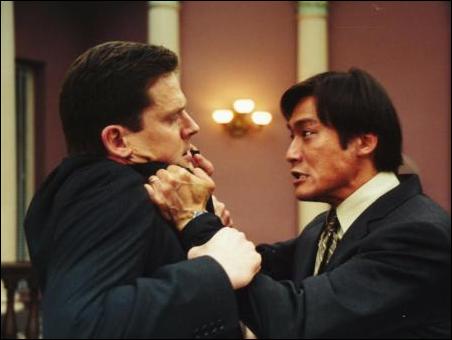
What's in movies could happen in real life.
In a 2001 movie, The Gua Sha Treatment, a Chinese family in the US is almost driven mad after the grandfather, who came from the mainland to visit his son, gives his grandson a treatment of Gua Sha to combat fever and is later taken by local authorities and accused of committing child abuse. The family goes through a lot of trouble to get their child back after he’s taken away by the local child protection agency.
As a traditional Chinese therapy that is easy-to-acquire and useful, Gua Sha involves scraping the skin with a dull-edged household instrument, such as a silver coin, soup spoon or tender wooden board, to help stimulate the inner functioning of the body to combat diseases. The treatment leaves painful-looking red splotches (Sha) in the skin, although patients actually seldom feel pain.
Recently, a Chinese mother in Spain was detained by police and sued for alleged child abuse after she conducted Gua Sha treatment for her 9-year-old son in attempt to cure his cold and cough and left stretches of red splotches on her son’s back. Although she later hired a lawyer to successfully plead to the court and got the charge dropped, her story is a vivid illustration of cultural shock and conflict.
It can be excluded that there is any discrimination against the Chinese in the Spanish case. Rather, it is commendable that the local authorities had strict laws and law-implementation procedures to protect children, something that China can learn.
As exchanges between China and other countries increase, more and more cases involving cultural shock and conflicts have appeared in media reports.
A typical example known to many is that British people often start their conversation by commenting on weather conditions while the Chinese in some places asked each other whether they have already had breakfast or lunch (although fewer and fewer Chinese people nowadays start their talks that way).
Such cultural differences are trivial and harmless. They would not bring much trouble to the people involved. But in some cases, such lack of cultural rapport could be annoying and even cause legal actions.
For Western people, for example, privacy is important. People generally do not ask each other about their marriage status or salary level. But for many Chinese, they are yet to develop a sense of privacy in the Western sense. Therefore, some Chinese may be seen as being rude when they ask their Western friends about how much they earn.
Cultural conflicts can also be reflected in economic exchanges between China and the West.
Many business people from the West complain that they are not used to the way of business-doing in China. For example, offers of baijiu (Chinese spirits) at banquets is an indispensable part of etiquette in some places in China (especially in the North) and refusal to drink by the guests is deemed seriously impolite, which, in some cases, could affect contract-signing. But for many Westerners, the liquor is hard to swallow.
Medical treatment could be the most controversial. The Chinese people have a long history of using traditional therapies, such as acupuncture, Gua Sha, cupping and moxa-moxibustion, and take it for granted. But for Westerners, those treatments may be more like a way of murder and damage rather than a method of cure, although acupuncture is becoming more popular in the US and Europe.
Traditional Chinese medicine is not alone in being demonized. Some alternative treatments are also illegalized in the US. In 2009, a 13-year-old Minnesota boy, Daniel Hauser, who suffered from cancer, refused chemotherapy (the mainstream orthodox method patients are generally advised to take) and tried to seek alternative treatment in Mexico via southern California. After the local media reported his case, a national search for the boy was launched and, after he was found, a local court intervened, with a judging ordering the boy to take chemotherapy.
In China, traditional Chinese medicine is protected by the Constitution. Hauser’s case would have been unbelievable in China, where numerous people diagnosed with hard-to-cure diseases, such as cancer, seek help from traditional Chinese medicine practitioners, including those who conduct acupuncture, Gua Sha, cupping and moxa-moxibustion.
Such cultural differences are inevitable as business, cultural or political exchanges become more and more frequent between different countries. In return, however, such exchanges help people understand each other and bridge cultural gaps.
We recommend:
